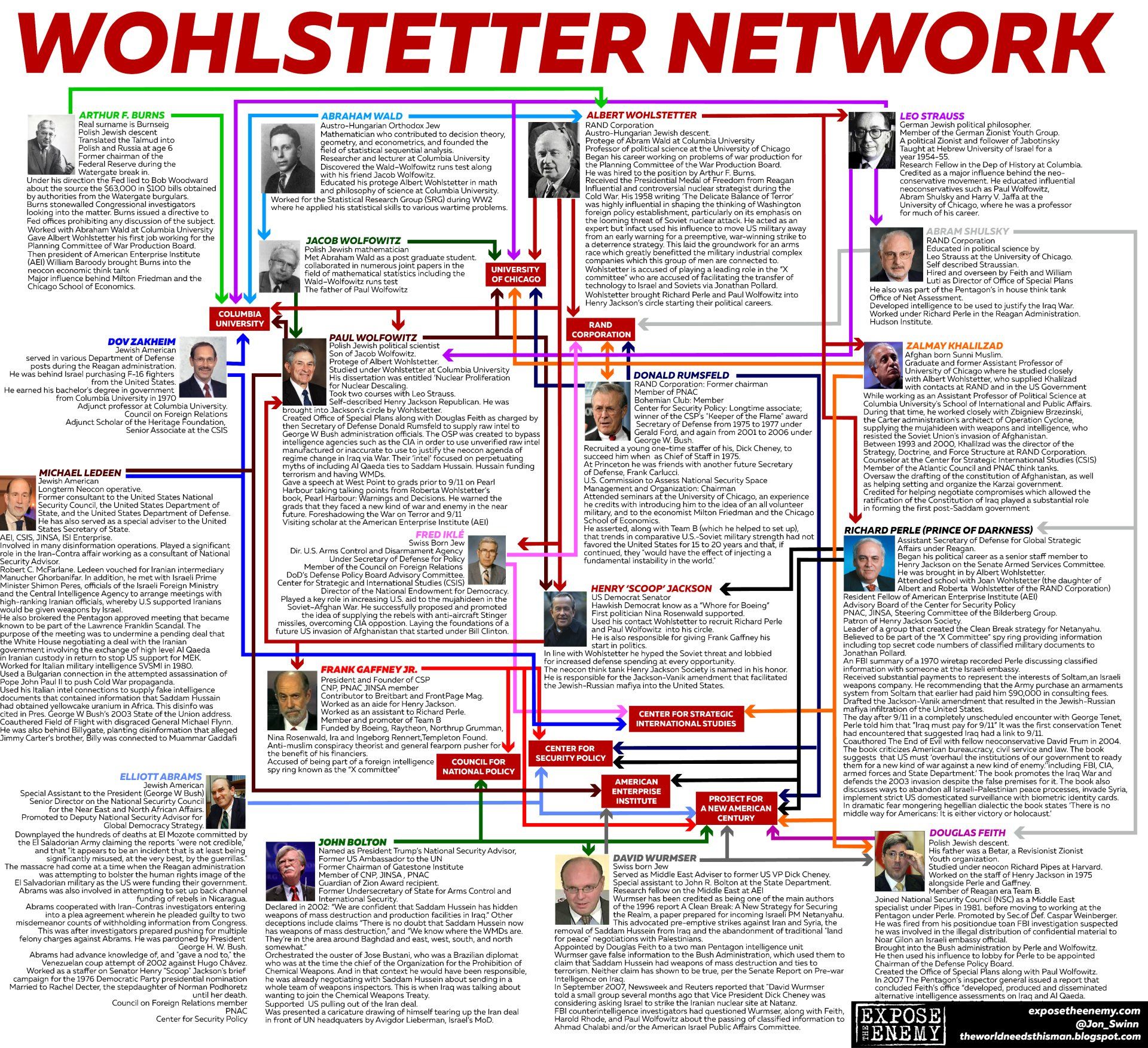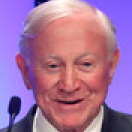Robert Maxwell, Promisgate, and the advent of the Israeli cybersecurity industry
After the Nazis lost World War 2, the Allies freely expropriated and reproduced German technology while Germany was left in the ashes. Stolen German technology included 'synthetic rubber, synthetic lubrication oils, for synthetic fiber-and textile production, diesel motors, optical inventions, heavy printing presses, wind channels, in which speeds of up to 8.000 km/hr were achieved, infrared target instruments, cassette players, electric condensation machinery, durable fruit juices, machines for wrapping chocolates, sugar made from wood, synthetic sapphires for watches, synthetic glimmer, non-running durable stocking stockings for ladies, machines for the production of butter, which produced 1,500 pounds of butter per hour, quartz watches, cellulose products, a multitude of pharmaceutical products, insecticides, cyanides for rust protection and as a substitute for zinc chrome, artificial leather, plastics, colour photography, sewing needles, an innumerable profusion of of precision instruments, protective remedies for frost and thousands of other inventions in the area of chemistry, physics, technology and electronics, in which the Germans were streaks ahead of other nations, that is, five, ten or more years advanced in development.' (Nordbruch)
Stolen German technologies that we use today included guided weapons, long-range missiles, airborne units, synchropters, rockets, jet powered aircrafts, and the first cassette players to name a few. The Allies were not the only ones stealing German patents; the Soviets got a piece of the pie as well, through British media tycoon Robert Maxwell.
Robert Maxwell
A key player in Soviet/Israeli espionage for decades to come was Robert Maxwell, real name, Jan Ludvik Hoch. Maxwell began his career as an interrogation officer for the British army at the Bad Salzuflen Headquarters in the British occupied zone of Germany right after World War 2, where he was interrogating German scientists. Maxwell would spend a considerable amount of time in the Russian sector of occupied Germany, which made British and American intelligence question his loyalty. According to the book, 'KGB: Death and Rebirth' by author Martin Ebon, Robert Maxwell's biographer, Tom Bower says that he was told by Detlev Raymond, an employee of Maxwell in New York that, Maxwell's relations with the Russians and the KGB were not were not simply social. Raymond asserted that, 'either willingly or unwillingly, Maxwell compromised himself with the Russians. He cited a KGB claim that Maxwell signed a document which promised to assist the security agency if needed.' (Ebon)
Maxwell used his contacts from authorities in the Allied Occupation of Germany to become the managing director of the US and British distributor for Springer Verlag, a German publisher of scientific journals which was taken over by the Allies. Springer Verlag then merged with the British Butterworth Publishing Company to form the Butterworth-Springer Publishing Company. Maxwell then bought 3/4th of Butterworth Springer, while the remaining 1/4th was bought by the Jewish scientific advisor, Paul Rosbaud. They then changed the company's name to Pergamon Press. The sale was brokered by the prominent Jewish banker and MI6 agent, Charles Hambro according to British journalist, Stephen Dorril. Hambro 'acted as head of the 'British raw materials mission' in Washington, a cover for exchanging information and technology between Britain and the United States which led to the detonation of the first Atomic Bomb as part of the Manhattan Project, which was run by Soviet Jewish agents.
Hambro had extensive historical business ties to banking dynasties such as the American Morgan banking family, having received training at J.P. Morgan's Guaranty Trust Company in New York where he and his wife lived with Henry Morgan, founder of Morgan Stanley. The Morgans heavily invested in cutting edge technology. J.P. Morgan financed Nikola Tesla's futuristic Wardenclyffe Tower in the middle of Long Island, New York. Morgan also financed Thomas Edison's technological ventures through General Electric. Edison is credited for inventing the first x-rays, voice recorders, and motion pictures, yet all three of those were plagiarized from European inventors: the x-ray was invented by German scientist Wilhelm Rontgen, the voice-recorder by French bookseller Edouard-Leon Scott de Martinville, and the first motion picture by French inventor Louis Le Prince. (Did Thomas Edison Steal Inventions?)
Origin of Promis software
Promis (Prosecutors Management Information Systems) was originally the DOJ's case management information system in the 1970s. It was developed through contracts and grants from the Law Enforcement Assistance Administration (LEAA) to a small information technology firm named Inslaw (Institute for Law and Social Research) run by William and Nancy Hamilton. Before founding Inslaw, Hamilton was a contractor in the R&D unit of the NSA who set up listening posts to monitor the Viet Cong during the Vietnam war. Hamilton, who was fluent in Vietnamese, also worked on creating a computerized English-Vietnamese dictionary for the agency. After developing Promis for the DOJ, Congress voted to abolish LEAA. The Hamiltons then bought Inslaw and converted it into a for profit corporation. They decided to invest their own money into creating an upgraded version of Promis they named "Enhanced Promis" due to the significant enhancements.
As the technological revolution was just rolling out, databases were very primitive compared to today. Early databases were not relational; they could not interconnect with data from different categories. Hamilton best described the inefficiencies: "The United States government, the most powerful government in the world, has internal information systems which are mired in the archaic technology of the 1960s. There is a Department of Justice database, an Attorney General's database, and an IRS database. Every arm of government has its own database. But none of them can share information. That makes tracking offenders almost always difficult and building cases against them a long and bureaucratic task." (Thomas 35)
Relational databases emerged in the 1970s with companies like IBM, Oracle, and Microsoft developing basic versions. Enhanced Promis was a game changer; it was the best relational database on the market. PROMIS could have made the Hamiltons into multi-millionaires. Due to their love of their country and their "unassailable belief in the Constitution and those it served", they sought to have the federal government be their first client. (Thomas 34)
William Hamilton contacted the DOJ to brief them on Enhanced Promis. They then got a call back from Madison "Brick" Brewer, the Justice Department's project manager. Brewer once worked under Hamilton at Inslaw. Brewer told Hamilton that he was sending a visitor to Inslaw's headquarters in Washington D.C. The visitor was named Dr. Orr, a supposed Israeli public prosecutor. That was his alias. His real name was Rafi Eitan, the infamous deputy director of operations for the Mossad.
Eitan had conducted numerous Israeli espionage operations against the United States, including the NUMEC affair in which Israel illegally diverted 200-600 pounds of government owned highly enriched uranium to Israel for Israel's clandestine nuclear weapons program, and the Jonathan Pollard spy case in which a Jewish Zionist senior analyst in the Navy Field Operational Intelligence Office "read and copied and transmitted every worthwhile secret the United States possessed ' and passed them on to the Soviets via Israel.' (Thomas 31) The CIA named Pollard as the most damaging spy in US history, and Rafi Eitan was his handler.
Those two cases are the most well known Israeli espionage operations against the United States, but they were just the tip of the iceberg. In reality, Israel's penetration of the US intelligence community was much bigger and monumental. Israel even had an entire intelligence agency called LEKEM (Bureau of Scientific Relations) designated to prowl for "scientific and technical intelligence abroad from both open and covert sources", particularly from the United States. "Every week LEKEM staff dutifully shipped boxes of technical journals back to Tel Aviv."
DOJ/Israel's Theft of Promis
Promis was put to use by the Justice Department in the early 1980s through a contract with Inslaw. The Department withheld millions of dollars in lease payments which forced Inslaw to file for bankruptcy. With Inslaw effectively destroyed, the DOJ, then headed by Attorney General Edwin Meese IIIÂ transferred Promis to the NSA and CIA who put a backdoor in the software through Michael Riconosciuto, a computer and electronics expert who claimed to have also reprogrammed the software. With this backdoor in place, the CIA secretly installed Promis in the Bank of International Settlements (BIS) in Switzerland to "keep track of electronic fund transfers to combat money-laundering and other criminal activities, including drug trafficking, securities and banking frauds and political payoffs. The CIA also began to furnish the software to its agents in the field to track data." (Thomas 49)
The NSA also got a piece of the action, using Promis to penetrate the global banking industry. A secret memo prepared by the then Special Assistant to the President for National Security Planning, ordered the NSA "to penetrate banks to combat money laundering and other criminal activities including drug trafficking, illegal sales of high technology to the Soviet Union and gun running to terrorist and guerilla groups."
The CIA then sought to clandestinely sell Promis software to intelligence agencies around the world to give themselves the ability to tap into their agencies at will. Earl Brian, a former Reagan affiliate and CIA asset proposed that they use his own technology firm, Hadron Technologies Inc. to market PROMIS. Earl Brian was the former Director of California's Department of Health under then governor Reagan. Brian was heavily involved in the October Surprise Case where the Reagan-Bush transition team delayed the release of US hostages in Iran during the Hostage Crisis in exchange for selling spare parts to Iran during the Iran-Contra affair."With the help of Ursula Meese's (wife of Edwin Meese) money and her husband's Washington contacts, Brian had managed to establish Hadron as a computer contractor for the United States government." (Thomas 50)
Brian was a shady fellow. Before getting a spot in Reagan's cabinet, the Securities and Exchange Commission "had cited him for issuing press releases designed to inflate stocks in his company." This led to Brian being charged guilty of fraud and sentenced to a 57-month term in a federal penitentiary. (Thomas 51)
Hadron Technologies eventually acquired Promis through a federal contract from his insider buddies in the Reagan administration. Hadron Technologies was a subsidiary of The Biotech Corporation which was also headed by Earl Brian. Hadron Inc. then sold Promis to 80 domestic and foreign intelligence agencies around the world, giving the Soviet/Israeli Private Intelligence network running the CIA a backdoor into foreign intelligence agencies and banks. Hadron Inc. wasn't the only company to market Promis on behalf of the CIA; Systematics Inc. of Little Rock, Arkansas was another. Systematics Inc. was founded by Jackson Stephens, owner of Stephens Inc. and the Worthen Banking Corporation, which funded Bill Clinton's 1992 presidential campaign and was implicated in the Whitewater scandal. The intellectual property lawyer for Systematics who defended its thievery Hillary Clinton.
Israel Backdoors Promis
The United States was not the only country to place a backdoor into Promis. As previously mentioned, in 1983, the Hamiltons were visited by Rafi Eitan posing as a public prosecutor from Israel named Dr. Ben Orr. Orr told them that he was impressed with Promis and was looking to purchase it. It later came out that Dr. Ben Orr was the alias for none other than the infamous Israeli intelligence agent Rafi Eitan. Eitan left the meeting without buying Promis, but he was able to get a free copy through Earl Brian.
After Eitan got his hands on Promis, he worked through former Mossad agent, Iranian Jew Ari-Ben Menashe, who reached out to a Jewish Silicon Valley computer engineer, Yehuda Ben-Hanan to construct another backdoor into Promis, this time exclusively for the Israelis. <strong>This gave Israel their very own backdoor into the intelligence agencies of each country that bought Promis from Israel.</strong> Israel knew that it wouldn't be able to sell Promis openly, so they had to recruit a third party seller. Eitan knew the perfect man for the job; the man was Robert Maxwell.
Maxwell used his Pergamon Press technology network to buy up Israeli technology firms which were fronts for the Mossad, like Degem Computers. "In the United States, Maxwell had also set up a raft of small companies that were a spin-off of his own gigantic Pergamon Press in Britain. A number of those companies were based in Virginia and Arkansas. Among board members were several former members of intelligence agencies. (Thomas 53)
Maxwell sold Promis to the intelligence agencies of New Zealand, Australia, Thailand, Turkey, Belgium, Poland, East Germany, Egypt, Bulgaria, Nicaragua, Colombia, Guatemala, South Africa, Zimbabwe, China
, the Royal Canadian Mounted Police (Canada's FBI), and the KGB
. The Israelis also sold Promis to the Eastern Bloc, Nicaragua, Colombia, Chile, Brazil, and the Rothschild controlled Credit Suisse through Maxwell's Israeli front company, Degem. The sale to Credit Suisse would give Israel the ability to monitor all transactions going through Credit Suisse, giving them an unwarranted advantage over world financial market. PROMIS was also sold to the infamously corrupt and now defunct BCCI (Bank of Credit and Commerce International).
BCCI was a Mossad/CIA affiliated bank that was involved in numerous scandals of the 1980s, including financing the Reagan administration's Iran-Contra secret arms deals and serving as a CIA drug trafficking and money laundering conduit for Pakistani state sponsored terrorists and the Afghan mujahideen, the predecessors to Al Qaeda.
According to Robin Cook, former foreign secretary of the United Kingdom from 1997 to 2001, Al-Qaeda, literally 'the database', was originally the computer file of the thousands of mujahideen who were recruited and trained with help from the CIA [and Mossad] to defeat the Russians. Inexplicably, and with disastrous consequences, it never appears to have occurred to Washington that once Russia was out of the way, Bin Laden's organization would turn its attention to the west. (Cook)
Maxwell's most infamous and damaging Promis affair was his business venture with China and the CSIS (China's Secret Service). The Chinese could only dream of obtaining U.S. nuclear secrets and other secret technology from the Los Alamos National Laboratories. "What about Los Alamos, one of his hosts was later reported by Goldstein to have mused; was even Los Alamos no longer impenetrable? Maxwell had laughed and said that even Los Alamos' defenses, like the walls of Jericho, would tumble under the electronic power of Enhanced Promis. Thus, Maxwell gave China access to Israel's secret backdoor. The Mossad was livid at Maxwell for revealing the backdoor, but Eitan used the development to his advantage. "He planned to penetrate deep into the very heart of America's nuclear arsenal using his doctored version of Enhanced Promis to do so. He devised a plan for Robert Maxwell to sell the software to Los Alamos. The device would contain the trap door which was so brilliantly designed it could not be detected; if deconstructed; the trap door would simply disappear."
Author Gordon Thomas detailing Maxwell's selling of backdoored Promis software to Sandia National Laboratories: "On a blistering hot day in January 1985, Robert Maxwell lumbered down the steps of his private Lear jet at Albuquerque airport. Behind him an aide carried the magnate's bulky briefcase, emblazoned with Maxwell's initials in gold leaf. This was the tycoon's second trip to Albuquerque in the past four months.
The first trip had been an exploratory one, made at Eitan's suggestion, to see if there was a potential market for the Enhanced Promis software to be sold to one of the many laboratories and research centers operating within the Los Alamos complex.
Maxwell had discovered on his first visit there that there was a long-standing requirement at Los Alamos for the latest compatible database software. On his initial visit, Maxwell had presented himself as President of "Information on Demand," a company incorporated in Virginia. However, the nature of the man had not stopped him from boasting that he was the single most powerful newspaper magnate in the world and that, through his parent holding company, he controlled an interlocking web of companies that were there to explain what he called "the cutting edge of technology that our company in Israel has developed."
What followed has so far remained under strict secrecy in FBI files.
"Eighteen heavily redacted FBI documents in the possession of the author and obtained under the Freedom of Information Act, provide sufficient clues to piece together a startling new slant to the botched investigation by the FBI into the later thefts from Los Alamos of its most sensitive nuclear secrets in a joint operation by Mossad and CSIS - using Israel's doctored Enhanced Promis software Robert Maxwell had sold Beijing."
(Thomas 59)
This was the beginning of an Israeli-Chinese technology sharing relationship that is being increasingly ramped up to this day; United States technology has been both legally and illegally acquired by Israel and sold to China, now in the midst of a trade war with the US that benefits Israel at the expense of the US.
Thomas explains how enraged the western intelligence community had been at this matter, "Having laid out all they knew, the two officers from London turned their attention to the matter that primarily concerned them: the damage done to joint US/UK/Canadian intelligence operations, not only as a result of China acquiring the Israeli-doctored Enhanced Promis software, but how it had been used to remove the secrets from the very heart of the West's defense against its new potential threat-China. That had been done with the complicity of Israel.
Inslaw/Hamilton Family Files a Lawsuit
With Inslaw now effectively bankrupt, Hamilton filed a 30 million dollar lawsuit against the Justice Department in bankruptcy court. In 1987, DC bankruptcy judge George Bason ruled that the Justice Department had stolen Promis through "trickery, fraud, and deceit." Inslaw received $6.8 million dollars in damages. "In the process it was found that the Justice Department "made a concerted effort to bankrupt Inslaw and place the company's enhanced PROMIS up for public auction (where it would then be fodder for Brian's Hadron). Bason's findings of fact relied on testimony from Justice employees and internal memoranda, some of which outlined a plan to "get" PROMIS software. When the DOJ appealed, a federal district court affirmed Bason, ruling that there was "convincing, perhaps compelling support for the findings set forth by the bankruptcy court." But the D.C. Circuit Court of Appeals reversed the case on a legal technicality, finding that the bankruptcy court had no jurisdiction to hear the damages claim. A petition to the Supreme Court in October 1991 was denied review. "But Inslaw's troubles did not end with bankruptcy. Frustrated by Attorney General Dick Thornburgh's stubborn refusal to investigate the DOJ or appoint an independent prosecutor, Elliot Richardson, President Nixon's former attorney general and a counsel to Inslaw for nearly 10 years filed a case in U.S. District Court demanding that Thornburgh investigate the Inslaw affair. In 1990, the court ruled that a prosecutor's decision not to investigate – "no matter how indefensible" – cannot be corrected by any court. Another loss for Inslaw." (Fricker 93)
When it looked as if all hope was lost, Inslaw suddenly received calls from a slew of witnesses to the theft of Promis, including former Israeli spy, Iranian Jew Ari-Ben Menashe, and computer programmer Michael Riconosciuto.
"The string of lawsuits and widening allegations caught the eye of House Judiciary Committee Chairman Jack Brooks, D-Texas, who in 1989 launched a three-year investigation into the Inslaw affair. In the resulting report, the Committee suggested that among others, Edwin Meese, while presidential counselor and later as attorney general, and D. Lowell Jensen, a former assistant and deputy attorney general and now a US district judge in San Francisco, conspired to steal PROMIS. "Actions against Inslaw were implemented through the Project Manager (Brick Brewer) from the beginning of the contract and under the direction of high- level Justice Department officials," the report says......." The evidence...demonstrates that high-level Department officials deliberately ignored Inslaw proprietary rights and misappropriated its PROMIS software for use at locations not covered under contract with the company." (Fricker 93)
The case met its end when Congress referred it to the Court of Federal Claims in 1995, where the Court ruled against Inslaw. Former House Judiciary Committee chairman and Jewish-American patriot John Cohen stated: "There is a putrid stretch that reaches across party lines in Washington and involves cover-ups by various administrations and foreign governments, specifically Israel's. Though tens of millions of dollars have been spent investigating the 'Inslaw affair,' they have all failed for one reason only. Very powerful people do not want the truth to get out." (Thomas 88) The House Judiciary Committee laid a similar verdict: "The theft of Enhanced Promis is surrounded by conspiracy, fraud, witness tampering, retaliation against witnesses, interference by commerce by threats of violence. Violations of the Racketeer Corrupt Organizations Act. Transportation of stolen goods, securities, monies. Receiving stolen goods."
But more serious of all had been the accusation that <strong>"a foreign power-the state of Israel-had been engaged in active espionage against the United States by the illegal use of the Enhanced Promis software."</strong> (Thomas 89)
Robert Maxwell Assassinated by Mossad
Despite doing so much for the Mossad and Israel, Maxwell soon became a liability to the Mossad after his sale of Enhanced Promis to the Chinese CSIS. Maxwell began amassing massive amounts of debt to his City of London and Wall Street creditors, refusing to pay back his loans. He was on the verge of bankruptcy. Maxwell begged his creditors to bail him out, but they refused. He then turned to the Mossad for a bail out. Thomas states, "Another option for Mossad was to approach its highly-placed contacts in the City of London and urge them to support a rescue package for Maxwell. At the same time, Maxwell-friendly journalists in Britain could be encouraged to write supportive stories about the financially troubled tycoon.
"The final option for Mossad was to break off all contact with Maxwell. There was a risk there: Maxwell, on the evidence of his present unpredictable state of mind, could well use his newspapers to actually attack Mossad. With the access he had been given, that could have the most serious consequences." (Thomas 59)
Mossad finally came to the conclusion that there was nothing they could do. They refused to bail Maxwell out, and knew that his City of London creditors who were adamantly demanding repayment wouldn't either. Inevitably, Maxwell threatened to reveal Mossad's secrets in his newspaper empire. According to Mossad defector Victor Ostrovsky, that was the final straw. "The former spy later claimed that Maxwell had reached his "sell-by date in terms of balancing his usefulness against his shameless bully-boy tactics in Israel. Mossad could not go on allowing that. Nobody kicks around the head of Mossad.†(Thomas 64)
According to Ostrovsky, the Mossad had lured Maxwell to the East Atlantic offering him a huge check of bailout money.
"Unknown to anyone on board, Maxwell clung to the promise he had received from Shabtai Shavit, the current director general of Mossad. He had been told that at sea The Lady Ghislaine would rendezvous off the coast of West Africa with another boat. He would be handed by its captain a sealed envelope. Inside would be a banker's draft to the value of one billion US dollars drawn on an account in Credit Suisse in Geneva, Switzerland.
From his own financial dealings, Maxwell would have known that the Swiss bank was one that Mossad used to transfer secret funds.
But was Shavit's promise, given to Maxwell before he had left more than a ploy to try and placate Maxwell? Unusual though the exchange at sea would be for any normal business transaction, it would appeal to Maxwell's own sense of adventure. This was how he would expect Mossad to behave!
Victor Ostrovsky, a former Mossad agent, would later indicate that the promise of financial salvation for Maxwell, was part of a “carefully conceived plan.†(Thomas 64) Then, "sometime on the night of November 4, 1991, Maxwell left his cabin and went on deck." (Thomas 65) No one knows what happened next.
"Then suddenly Robert Maxwell, a man who had survived through greed and corruption, who had spied for Mossad, who had then threatened the one agency he must have known could not be threatened, was no longer a problem for the spymasters who had controlled him.
He had vanished beneath the cold Atlantic swell.
On November 10, 1991, Maxwell's funeral took place on the Mount of Olives in Jerusalem, the resting place for the nation's most revered heroes. It had all the trappings of a state occasion, attended by the country's government and opposition leaders. No fewer than six serving and former heads of the Israeli intelligence community listened as Prime Minister Shamir eulogized: "He has done more Israel than can today be said."
</strong>
A year later, in October 1992, in what it claimed was a "world exclusive," headlined "How and Why Robert Maxwell was Murdered," Britain's Business Age magazine claimed that a two-man hit team crossed in a dinghy during the night from a motor yacht which had shadowed The Lady Ghislaine. Boarding the yacht, they found Maxwell on the afterdeck. The men overpowered him before he could call for help. Then, "one assassin injected a bubble of air into Maxwell's neck via his jugular vein. It just took a few moments for Maxwell to die." (Thomas 66, 87)
Former CIA Director George Tenet Wanted 'Promisgate' Investigation
Gordon Thomas stated that former CIA Director George Tenet (1996-2004) briefed both the Clinton and Bush administrations on the plethora of evidence that Israel had given China a backdoor into Los Alamos through Robert Maxwell. The FBI and CIA investigations had been stonewalled at the highest levels of the Reagan, Bush, and Clinton administrations with the approval of the previous CIA directors from William Casey to John Deutch, an ardent Zionist who had "Israeli relatives and part ownership of a house in West Jerusalem." (Barnes 2000) Deutch was forced to resign because he had his security clearance revoked by the CIA for storing highly classified material on his personal computers, similar to what Hillary Clinton did during her stint as Secretary of State in the Obama administration.
There were 17,000 pages of secret information on Deutch's computer, including top-secret "black programs." The CIA and the Senate/House Select Committees on Intelligence conducted an investigation into possible security lapses caused by Deutch's negligence in response. CIA Inspector General Britt Snider's 86-page report on the matter "describes receiving a deluge of emails from CIA employees who were outraged that the security review was being directed or, according to the e-mails, delayed by CIA Deputy Director and Zionist Jew, Nora Slatkin. (Barnes 2000).
The Executive Director of the House Permanent Select Committee on Intelligence and former CIA operation officer John Mills proclaimed that John Deutch was the worst CIA director in U.S. history. Mills stated that Deutch takes "first, second, and third prize" in the worst category because he did "major damage" to the CIA's Directorate Operations. (Barnes 2000)
George Tenet replaced Deutch as the CIA director. He immediately began looking into Promisgate and this Soviet/Israeli network.
Gordon Thomas writes, "Two of the documents concerned the Russian Mafia.
The first dealt with the Mafia's relationship with the Mossad. It contained the revelation that the Israeli agency could soon be asked to move its European headquarters in Holland following highly embarrassing claims that Mossad had been secretly buying plutonium and other nuclear materials from the Russian Mafia. The allegation had come from a CIA agent in Amsterdam who had picked it up from Intel, the small but formidable division of Dutch intelligence.
The CIA agent's report said that most of the nuclear material had been stolen by the Mafia from Russian weapons labs such as Chelyabinsk-70 in the Ural Mountains and Arsamas-16 in Nizhny Novgorod, formerly Gorky.
Senior Mossad officers had insisted to Intel that precisely because the deadly materials were stolen, their agents had purchased them from the Russian Mafia. It was the only sure way to stop the materials from being sold to Islamic and other terrorist groups.
While conceding that the Mossad claim was plausible, Intel investigators had become convinced the nuclear materials had been secretly shipped out of Amsterdam's Schiphol Airport to boost Israel's own nuclear weapons manufacturing plant at Dimona in the Negev Desert. Already stockpiled there were an estimated 200 nuclear weapons.
For Tenet, knowing Mossad was trafficking with the Russian Mafia had rekindled a nuclear nightmare that has never quite gone away."
The second part of the Russian Mafia report also dealt with its unusual relationship with Israel. The report detailed Israel's decision to allow a Russian Mafia boss, Seymon Yukovich Mogilevich, to travel on one of its passports. CIA's London Station had attached an MI5 report which described Mogilevich as "one of the world's top criminals. Substantial sums of hard currency have been provided to Saddam Hussein by this man from the sale of Iraqi oil allowed to be sold under United Nations' sanctions. Mogilevich has laundered the money around the world for Saddam." (Thomas 26)
Tenet was trying to get to the bottom of this Soviet-Israeli axis in both the Clinton and Bush white house, making him an outsider in both administrations. But he did have some leeway over Clinton. Tenet threatened to resign as CIA director if Clinton had pardoned Jonathan Pollard which the Israeli government and Israel lobby in the United States were heavily lobbying for. Tenet had this to say about the security risk that would arise from Pollard's pardon:
"If it is the last thing I do, it is to convince you that Pollard must remain locked away. Much of what he knows is still in his head. Some of what he stole is still in use by the CIA. The reason the key to his cell was thrown away until he dies is that he would be useful to Israel. They would just have to show him something and Pollard would know how to extrapolate from it. A man like that does not lose his touch because he is locked away. To even think of seeing Pollard within the context of the 'big picture' in the Middle East would be unthinkable." (Thomas 25)
"Now, nine years later, driving into Washington, Tenet knew those FBI documents about Robert Maxwell could go some way to providing the Bush transition team with highly persuasive evidence that it was not the hapless Dr. Lee who had been the Chinese Secret Service spy inside Los Alamos-but the Israeli version of the Enhanced Promis software that Robert Maxwell, with the full approval of Rafi Eitan and undoubtedly Israel's political masters, had sold to China.
"(Thomas 25)
The Bush administration did not re-investigate these matters because it consisted of elements of the same Soviet/Israeli axis via guys like Richard Perle, Douglas Feith, Elliott Abrams, Michael Chertoff, Paul Wolfowitz, and Michael Mukasey.
Promis software given to bin Laden through Russia?
In a 2006 Canadian Free Press article titled, "Promisgate: From KGB to PLa-2,†David Dastych states: "The history of this world-famous computer software [Promis] goes back a quarter of a century, and its applications by intelligence, organized crime and terrorist organizations began almost from the start. The software helped the United States win the Cold War against the Soviet Union, but it also served the Russian mafia, Saddam Hussein's regime, Osama bin Laden's al Qaeda, and an unspecified number of foreign spies and criminals. As far back as 1985, when the late British media tycoon and top [Israeli] Mossad spy, Robert Maxwell, revealed the software's "trap door" secret to Chinese Military Intelligence (PLa-2), while selling them a copy of Promis for $ 9 million, the powerful software was turned against the United States. The Soviet KGB purchased PROMIS from Robert Maxwell, but they also [later] received a copy (together with the Trojan Horse secret) from Robert Hanssen, a spy planted in a most sensitive office of the FBI. The Soviets and their East European allies, including Poland, used PROMIS to spy on the U.S. State Department and 170 American Embassies and Consulates all over the world. This practice may have continued as late as 1997, and the post-communist intelligence agencies of Russia and other countries, including Polish Military Intelligence (WSI), may have been able to retrieve information from U.S. Government agencies, because as many as 64 of them [are believed to have] used modified versions of Promis. Using the same PROMIS software, purchased from Russia, Saddam Hussein and members of his regime could shift huge sums of money undetected through the banking system. Some of these funds are still supporting the anti-Coalition insurrection in Iraq and terrorists. In the mid-1990s, Chinese Military Intelligence (PLa-2) organized their own hackers department, which [exploited] PROMIS [database systems] [in the] Los Alamos and Sandia national laboratories to steal U.S. nuclear secrets.
No overall damage assessment has been prepared yet. But the losses to the U.S. economy may be in billions of dollars, and damage to the national security of the United States and its allies may be incalculable.
An American intelligence officer, whose name cannot be disclosed, made the following comment on the consequences of the illegal operations performed with the use of Promis:
"Yes, we gave Promis to the Russians and Chinese to back door their intel. Worked like a charm. The only problem was 'blowback'. As we gave it to our enemies in order to back door them through the trap door Trojan horse asset in PROMIS, we left sixty-four federal agencies wide open in the U.S. Government who also used PROMIS. The powers-that-be felt that the information obtained far outweighed the damage done to the security of the 64 federal agencies. Just think, federal agents exposed, witness relocation programs compromised, etc. Just a matter of time." (Dastych 2006)
Inslaw founder William Hamilton is on the record pushing for the 9/11 commission to investigate accusations that a version of the software was diverted to Osama bin Laden. ("Firm says stolen software helped bin Laden plot 9/11" 2003)
Another 9/11 Promis connection is Ptech. The Quincy, Massachusetts-based company was supposedly connected to the Muslim Brotherhood and Arab financiers of terrorism. The firm’s suspected links with terrorism resulted in a consensual examination by the FBI in December 2002, which was immediately leaked to the media. The media reports of the FBI 'raid' on Ptech soon led to the demise of the company.
Ptech 'produced software that derived from Promis, had an artificial intelligence core, and was installed on virtually every computer system of the U.S. government and its military agencies on September 11, 2001.'
'This included the White House, Treasury Dept. (Secret Service), Air Force, FAA, CIA, FBI, both houses of Congress, Navy, Dept. of Energy, IRS, Booz Allen Hamilton, IBM, Enron and more.'
"Whoever plotted 9-11 definitely viewed the FAA as the enemy that morning. Overriding FAA systems would be the most effective way to ensure the attacks were successful. To do this, the FAA needed an evolution of PROMIS software installed on their systems and Ptech was just that; the White House and Secret Service had the same software on their systems - likely a superior modified version capable of 'surveillance and intervention' systems."
But did the U.S. government unwittingly load software capable of "surveillance and intervention" operations and produced by a company linked to terrorism onto its most sensitive computer networks, or was Ptech simply a Mossad "cutout" company?
Oussama Ziade, a Lebanese Muslim immigrant who came to the U.S. in 1985, founded Ptech in 1994. But <strong>the company's original manager of marketing and information systems was Michael S. Goff, whose PR firm, Goff Communications, represents Guardium, a Mossad-linked software company.â€</strong> (Bollyn 2005)
Modern Day Versions of Promis
PRISM software is claimed to be a modern day advanced iteration of Promis, which the US National Security Agency (NSA) uses to conduct surveillance. Narus and Verint are two Israeli tech companies involved in a NSA spy scandal in which copies of our (US) phone calls and email data are sent to secret rooms at NSA buildings across the country. These Israeli companies are closely connected to Unit 8200, the electronic espionage unit of the Israeli military. (Narus was acquired by Boeing in 2010.)
Jacob "Kobi" Alexander, the former head of Comverse, the parent company of Verint, is a wanted criminal who has fled U.S. justice to Africa and probably subsequently to Israel. It is important to note that Kobi Alexander and Comverse were closely connected to Odigo, the Israeli messaging system that was used to warn Israelis to stay away from the World Trade Center on 9-11. (Bollyn 2013)
Israel is the second largest cyber-security exporter in the world, only after the United States. Israel has used their theft of Promis software and continued theft of U.S. high technology to evolve into a high tech superpower, especially in the realm of cybersecurity. Just recently, left leaning Israeli newspaper Haaretz revealed that "Israel has become a leading exporter of tools for spying on civilians. Dictators around the world-even in countries with no formal ties to Israel-use them to eavesdrop on human rights activists, monitor emails, hack into apps and record conversations."
"A comprehensive investigation carried out by Haaretz, based on about 100 sources in 15 countries, had as its aim lifting the veil of secrecy from commerce based on means of espionage. The findings show that Israeli industry have not hesitated to sell offensive capabilities to many countries that lack a strong democratic tradition, even when they have no way to ascertain whether the items sold were being used to violate the rights of civilians. The testimonies show that the Israeli equipment has been used to locate and detain human rights activists, persecute members of the LGBT community, silence citizens who were critical of their government and even to fabricate cases of blasphemy against Islam in Muslim countries that don’t maintain formal relations with Israel. The Haaretz investigation also found that Israeli firms continued to sell espionage products even when it was revealed publicly that the equipment was used for malicious purposes.
Private Israeli companies, the investigation discovered, have sold espionage and intelligence-gathering software to Bahrain, Indonesia, Angola, Mozambique, the Dominican Republic, Azerbaijan, Swaziland, Botswana, Bangladesh, El Salvador, Panama and Nicaragua. In addition, the investigation corroborated earlier reports over the years about sales to Malaysia, Vietnam, Mexico, Uzbekistan, Kazakhstan, Ethiopia, South Sudan, Honduras, Trinidad and Tobago, Peru, Colombia, Uganda, Nigeria, Ecuador and United Arab Emirates." (Shezaf, Jacobson)
Israel prides itself on being civilized compared to the supposedly barbaric Muslims who practice Sharia law, yet these Israeli cybersecurity companies, with close ties to the Israeli Defense and Intelligence community, export espionage software to Islamic countries who then use that technology to enforce Sharia law.
Is Peter Thiel's Palantir a privatized version of Promis?
Palantir technologies is a private American software company that specializes in big data analytics and was founded by Facebook's first outside investor, PayPal co-founder and executive committee member of the Trump transition team, Peter Thiel, along with Joe Lonsdale, Stephen Cohen, and Alex Karp. The company is known for two projects in particular: Palantir Gotham and Palantir Metropolis. Palantir Gotham is used by counter-terrorism analysts at offices in the United States Intelligence Community (USIC), Department of Defense, fraud investigators at the Recovery Accountability and Transparency Board, and cyber analysts at Information Warfare Monitor, while Palantir Metropolis is used by hedge funds, banks, and financial services firms. Palantir's original clients were federal agencies of the USIC. It has since expanded its customer base to serve state and local governments, as well as private companies in the financial and healthcare industries.
J.P. Morgan's executives were caught spying on employees through Palantir, "Aided by as many as 120 'forward-deployed engineers' from the data mining company Palantir Technologies Inc., which J.P. Morgan engaged in 2009, Cavicchia group vacuumed up emails and browser histories, GPS locations from company-issued smartphones, printer and download activity, and transcripts of digitally recorded phone conversations. Palantir's software aggregated, searched, sorted, and analyzed these records, surfacing keywords and patterns of behavior that Cavicchia team had flagged for potential abuse of corporate assets. Palantir's algorithm, for example, alerted the insider threat team when an employee started badging into work later than usual, a sign of potential disgruntlement. That would trigger further scrutiny and possibly physical surveillance after hours by bank security personnel."
'Palantir cut its teeth working for the Pentagon and the CIA in Afghanistan and Iraq. The company's engineers and products don't do any spying themselves; they're more like a spy's brain, collecting and analyzing information that's fed in from the hands, eyes, nose, and ears. The software combs through disparate data sources-financial documents, airline reservations, cell-phone records, social media postings-and searches for connections that human analysts might miss. It then presents the linkages in colorful, easy-to-interpret graphics that look like spider webs.' (Waldman, Chapman, Robertson 2018)
'It all ended when the bank's senior executives learned that they, too, were being watched, and what began as a promising marriage of masters of big data and global finance descended into a spying scandal. The misadventure, which has never been reported, also marked an ominous turn for Palantir, one of the most richly valued startups in Silicon Valley. An intelligence platform designed for the global War on Terror was weaponized against ordinary Americans at home.'
Imagine an entire world running on this type of technology; a society run by artificial intelligence. The fourth industrial revolution and the introduction of the 'internet of things', "a network of physical devices, vehicles, home appliances, and other items embedded with electronics, software, sensors, actuators, and connectivity which enables these things to connect, collect, and exchange data."
One crucial aspect of the internet of things will be the planned 5G cellular network. The network is being designed in Israel at Intel's 5 R&D centers in Israel. The Israel Daily News brags, "The Israeli team at Israel's Holy Land offices are reportedly leading the charge for the jump to 5G, that makes sense, given the number of Israel firms Intel has gobbled up over the years. As of now, Intel is probably the single largest employer of tech jobs in the country, with almost 1100 Israeli Employees to date. The company has sunk close to $35 billion dollars in Israel's economy." That's $35 billion dollars that should have been invested in the United States, where Intel was established and is headquartered.
Intel receives $3.87 billion dollars in US government subsidies, the third largest amount of corporate welfare allocated to a US company. Yet Intel invests $35 billion dollars in a foreign country, Israel, with the American taxpayers picking up the tab. Intel also designs all its CPU core processors in Israel. Cyber-security researcher Christopher Domas found that<strong> Intel CPUs have patented "hidden backdoors that let you seize root by sending a command to an undocumented RISC core that manages the main CPU." (Wagenseil) These backdoors were put in place by Israeli technicians at Intel's Israeli design and fabrication centers.</strong>
(Thank you to Bridget
, JC and Jon Swinn
for contributing)
Artwork by Jon Swinn
Works Cited
Fricker, Richard L. 'The INSLAW Octopus.'
Wired, Conde Nast, 1 Jan. 1993, www.wired.com/1993/01/inslaw/.
Dastych, David. Promisgate: World's Longest Spy Scandal Still Glossed Over.
New, Headline News, Breaking News, 31 Jan. 2006, canadafreepress.com/2006/dastych013106.htm.
John M. Deutch. Wikipedia, Wikimedia Foundation, 11 July 2018, en.wikipedia.org/wiki/John_M._Deutch
Scheer, Steven. 'U.S. Intel Plans $5 Billion Investment in Israeli Plant: Minister.' Reuters, Thomson Reuters, 21 Feb. 2018, www.reuters.com/article/us-intel-israel-expansion/u-s-intel-plans-5-billion-investment-in-israeli-pl....
Inslaw Inc - Conservapedia, www.conservapedia.com/Inslaw_Inc.
Retherford, James, and Sherman DeBrosse. The Reagan PROMISgate Affair.
Hot Digital Dog Design, 2 Feb. 2010, hot-digital-dog.com/words/the-reagan-promisgate-affair.html. Gbaconqz.
The Plans for 5G to Power the Internet of Things. Quartz, Quartz, 18 Aug. 2015, qz.com/179980/the-plans-for-5g-to-power-the-internet-of-things/.
Arthur Temple Franks - Powerbase, powerbase.info/index.php/Arthur_Temple_Franks.
Travis, Alan. Margaret Thatcher in Cover-up after Czech Spy Exposed John Stonehouse. The Guardian, Guardian News and Media, 30 Dec. 2010, www.theguardian.com/politics/2010/dec/30/margaret-thatcher-spying-john-stonehouse.
Waldman, Peter, et al.
Peter Thiel's Data-Mining Company Is Using War on Terror Tools to Track American Citizens. The Scary Thing? Palantir Is Desperate for New Customers.†Bloomberg, 19 Apr. 2018, www.bloomberg.com/features/2018-palantir-peter-thiel/.
Peter Thiel Wikipedia, Wikimedia Foundation, 2 Nov. 2018, en.wikipedia.org/wiki/Peter_Thiel.
Thomas, Gordon. Seeds of Fire: China and the Story behind the Attack on America. Dandelion Books, 2001.
Ben-Menashe, Ari. Profits of War: inside the Secret U.S.-Israeli Arms Network. TrineDay, 1992. Ebon, Martin. KGB, Death and Rebirth. Praeger, 1994. Nordbruch, Claus, and Dagmar Brenne. Grabert Publishers .
Shezaf, Hagar, and Jonathan Jacobson. Revealed: Israel's Cyber-Spy Industry Helps World Dictators Hunt Dissidents and Gays. Haaretz.com, 21 Oct. 2018, www.haaretz.com/israel-news/.premium.MAGAZINE-israel-s-cyber-spy-industry-aids-dictators-hunt-dissid....
Did Thomas Edison Steal Inventions. Historic Mysteries, Historic Mysteries, 29 Apr. 2016, www.historicmysteries.com/did-thomas-edison-steal-inventions/.
Cook, Robin. Robin Cook: The Struggle against Terrorism Cannot Be Won by Military Means. The Guardian, Guardian News and Media, 8 July 2005, www.theguardian.com/uk/2005/jul/08/july7.development.










